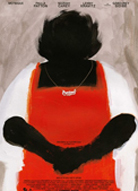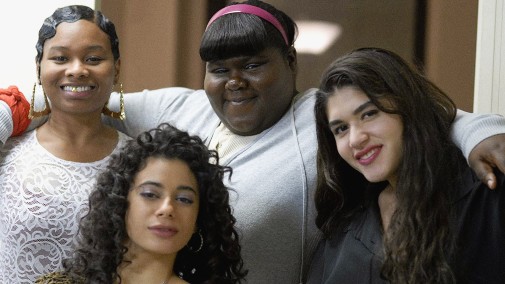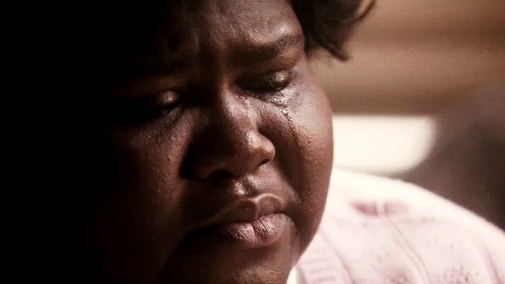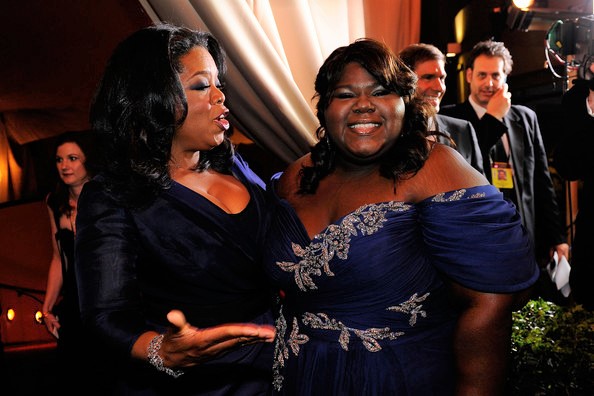by Cláudio Alves
 Considering I haven't watched it in almost 10 years, it was amazing how much I could accurately recall from Lee Daniel's Precious. As I revisited the Academy-Award winning film to write this piece, I found myself startled at how much of it had seared into my mind. A few line readings were so vivid that, even before hearing them again, they felt like echoes from years ago. Individual scenes had metastazied into memories like vociferous ghosts, brighter than any recollections of my actual life.
Considering I haven't watched it in almost 10 years, it was amazing how much I could accurately recall from Lee Daniel's Precious. As I revisited the Academy-Award winning film to write this piece, I found myself startled at how much of it had seared into my mind. A few line readings were so vivid that, even before hearing them again, they felt like echoes from years ago. Individual scenes had metastazied into memories like vociferous ghosts, brighter than any recollections of my actual life.
The way Gabourey Sidibe says that nobody loves her still hurts, a dagger of vulnerability mercilessly plunged into the audience's heart. No less affecting is Paula Patton's desperate response, assuring Claireece 'Precious' Jones that she is loved. Notice how Mariah Carey shows her social worker's interiority through repressed horror. She wears an armor of acerbity, delivering her lines with a put-upon dryness that both masks and iluminates the hurt inside. Then there's Mo'Nique and her final monologue, a sobbed question tearing through her throat and reminding us that this monster is painfully human. The film even packs some comedic delights. Who can forget Xosha Roquemore telling the class that her favorite color is fluorescent beige?

Those brilliant actresses are the heart and soul of a film I wish I could admire past the greatness of its cast. Unfortunately, what seemed unnecessarily sensationalistic in 2009, only seems more so after a decade has gone by. Lee Daniels holds the honor of being just the second African-American man to be nominated for the Best Director Oscar. However, despite such recognition, most of the film's problems are born out of his approach to what was already a narrative perilously close to falling into the abyss of misery porn.
Daniels never met a stylistic flourish he didn't want to try out. At least, that's what it feels like when you watch Precious' patchwork of maniacal formalism, sown together with little interest in tonal cohesion. Surprisingly, some of it works, like the glamorous fantasies that allow us to peek into the protagonist's aspirations. Though, for every inspired touch, ten others refuse to come together. Think of the grotesque close-ups of sizzling food or a bizarre interlude of Italian Neorealism pastiche. At least, he's a great director of actors.
Like Daniels, screenwriter Geoffrey Fletcher holds an Oscar record, being the first African-American to win the Adapted Screenplay category. Unlike Daniels, his work isn't as inconsistent. The film's highlights owe a great deal to Fletcher's adaptation of Sapphire's original novel. Mo'Nique's towering monologue is insanely good and even if the actress's performance is what elevates the scene to the highest echelons, the foundation of such greatness is in the screenplay's stark paroxysms of terrifying humanity and exorcised trauma. The way she acts such text is, of course, all her doing and that's why she won her richly deserved Oscar.

Honestly, one could write an entire book about the work of this cast, but I'll try to be succinct. Mostly, I'd like to shed light on the performer that was Oscar-nominated but didn't win. Gabourey Sidibe is monumental in this, playing a teenager so abused that she appears to expect pain at every turn. She modulates her shell of antisocial toughness, slowly revealing the character's longings, her hurt and desperation, her resoluteness and her joy. Part of Sidibe's genius is how she goes against simplistic readings of her character as a unidimensional victim. Precious, at times, is like a depuration of human pain, but the actress never allows her to be solely defined by the suffering she endures. Above all else, Sidibe's Precious is a beautifully complex human being.
It says a lot about our culture that, back during the 2009/10 Awards Season, Gabourey Sidibe and fellow Best Actress nominee Carey Mulligan were treated so very differently by the media. Both were breakthrough stories of success, but, while the British ingenue was compared to Audrey Hepburn and celebrated as a rising star, Sidibe faced immediate conjectures about the uncertainty of her future. Many a review seemed to reflect an assumption that she was just playing herself. When the actress's ebullient personality shone through during the press tour, suddenly the value of her work seemed to lie solely on the surprise people felt when they realized the actress was dramatically unlike her character in real life.

Racist media coverage and venomous societal preconceptions aside, both Mo'Nique and Gabourey Sidibe deliver the sort of performances that, even if they had nothing else in their filmography, would rightfully signal them as two of the greatest actresses of our time. I personally would have voted for both of them that year.